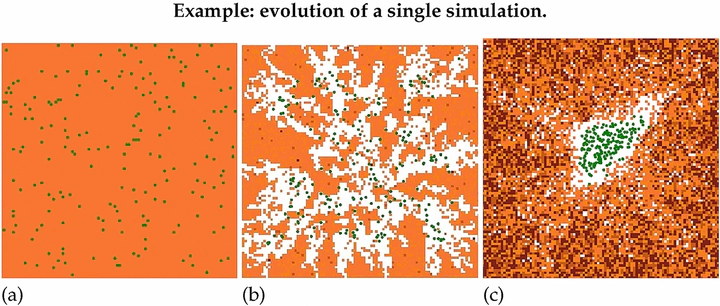Assessing the robustness of decentralized gathering: a multi-agent approach on micro-biological systems

Abstract
Adopting a multi-agent systems paradigm, we developed, tested and exploited a computational testbed that simulates gathering features of the social amoeba Dictyostelium discoideum. It features a tailored design and implementation to manage discrete simulations with autonomous agents on a microscopic scale, thus focusing on their social behavior and mutual interactions. Hence, we could assess the behavioral conditions under which decentralized gathering could occur. We investigated the dependence of the model dynamics on the main physical variables, namely density and number of amoebas, gaining indications that the process strongly depends on both. This result integrates previous researches, where density is identified as the sole relevant variable. We determined a high-density and high-numerosity region where assuming a scale-free behavior is safe. We also estimated the systematic uncertainties arising from a number of amoebas off the scale-free region, when coping with limited computational resources. Finally, we probed the robustness of the simulated gathering process against both extrinsic and intrinsic noise sources.